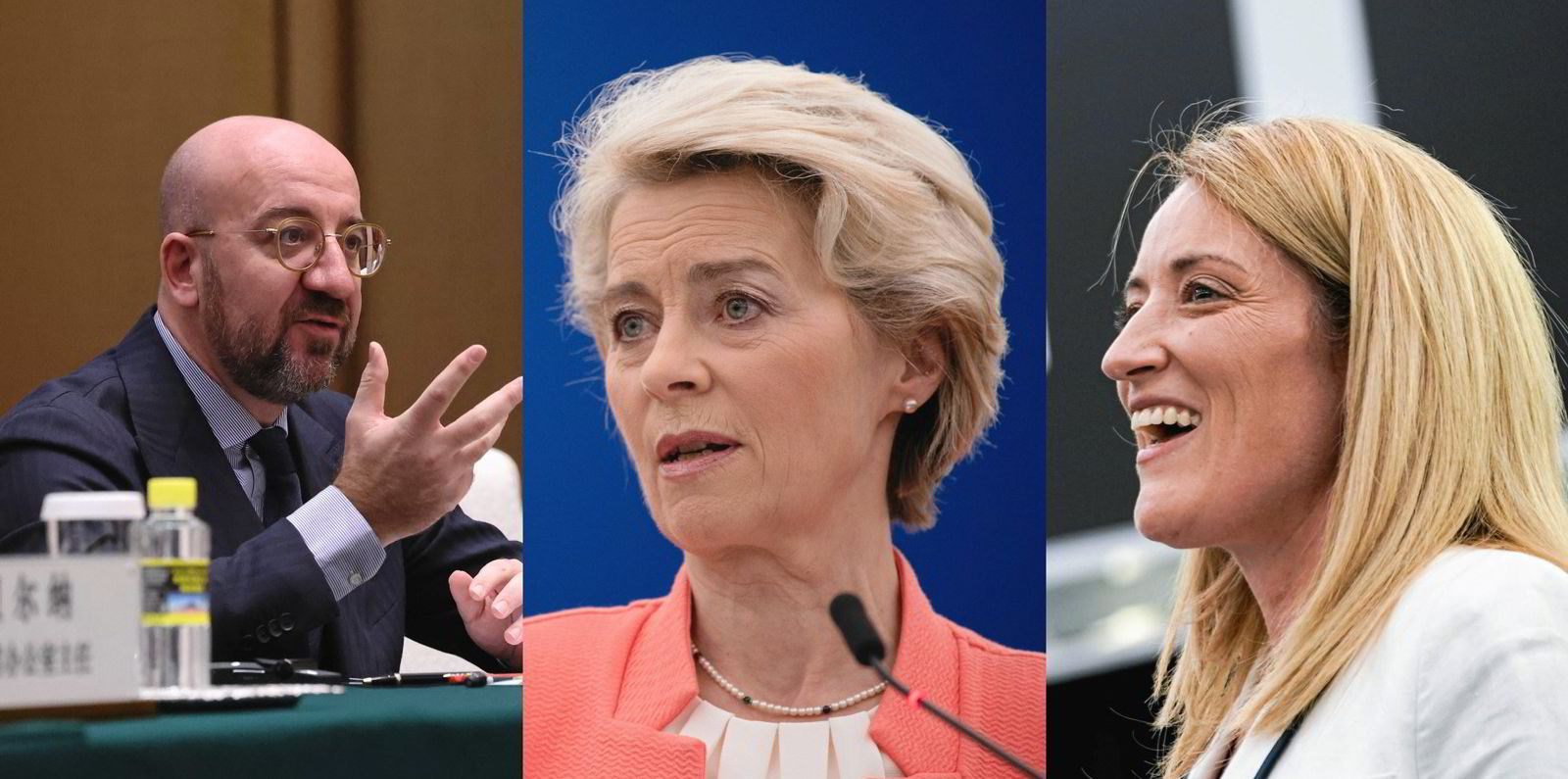The leader of negotiations to accelerate the decarbonisation of shipping believes there is a growing consensus for significant progress at crucial global talks in London next week.
Kitack Lim sees that there is growing understanding and trust between governments involved in the talks for faster decarbonisation.
There are signs that agreement may be found through leverage of funds generated by a levy on carbon-producing fuel that could raise up to $60bn each year to help offset climate and fuel-cost impacts along the lines of studies conducted by the World Bank.
“My own personal view is very optimistic,” the IMO secretary general told TradeWinds. “I believe we can deliver a just and equitable transition with no one left behind.”
The South Korean diplomat, who is normally reserved in his public comments ahead of sensitive negotiations, said: “I am very, very happy with progress and the ongoing negotiations.”
The United Nations maritime agency is set to hold an environment committee meeting next week that will see its 175 member nations set the framework for a decisive meeting in July next year, which is seen as pivotal if shipping is to rapidly decarbonise.
Carbon emissions from shipping — although down around 17% from their peak in 2008 — rose last year and will rise again in 2022 due to a larger fleet carrying more cargo virtually entirely powered by fossil fuels.
Higher ambitions
Many in the industry and environmental campaigners argue the carbon reduction targets set in the past decade are inadequate and lack rigour or incentives.
“My own view is that progress is now very positive for a higher level of ambition to reduce carbon emissions from international shipping, for vital alternative fuel availability, and crucially for a market-based measure,” Lim said.
“The Motor Vessel Decarbonisation has already departed port towards its destination. We cannot reverse this voyage.
“Next week’s MEPC 79 meeting is the time to raise our voice, do more homework and accelerate progress. We have to move towards the middle of 2023 at full speed to reach a good conclusion at MEPC 80.”
Magda Kopczynska, the outgoing director, waterborne in the European Commission’s mobility and transport directorate, said the meetings at IMO would help build support for phasing out of carbon emissions by mid-century.
“But the success should not be measured only with regards to the level of ambition agreed for 2050 but also when it comes to measures we agree upon that will help us to get to this target,” she said.
Next week’s MEPC 79 meeting is the time to raise our voice, do more homework and accelerate progress. We have to move towards the middle of 2023 at full speed
Kitack Lim
Campaigner Aoife O’Leary of Opportunity Green said: “MEPC 79 is a key opportunity before the big crunch time next year, so we urgently need to get the IMO on the right path to 1.5 degrees.”
Lim said the current IMO commitment to cut carbon emissions by 50% agreed in 2018 — which critics highlight falls short of the levels in the Paris agreement — needs to change.
“We have to upgrade the level of ambition as already agreed by member states,” he said.
This would be supported by two policy pillars: new alternative fuel standards and supply, and an upgrade of the Carbon Intensity Indicator that comes into force at the start of 2023.
The second is a carbon pricing mechanism.
“This is an important measure towards scalability of alternative fuels,” he said. “Without these alternative fuels, we will not move forward and provide incentives.”
Strengthening targets
Rasmus Bach Nielsen, global head of fuel decarbonisation for Trafigura, told TradeWinds: “If the Paris Agreement 1.5 degree target is to be reached, we need fully revised and strengthened emission targets for the shipping industry for 2030 and 2040.
“We need the industry to adopt a full life-cycle emission perspective for all fuels and we need availability of low and zero-emission fuels at scale. The bottom line is that we need a global, IMO-led carbon pricing scheme on the use of fossil fuels to unlock significant shipping decarbonisation.”
The World Bank calculations suggest a levy of up to $100 per tonne of CO2 would generate $40bn to $60bn every year to mitigate climate impacts. The funds could be spent on technology research and transfer, aid for small island nations and least-developed countries to fight climate impacts, and countries most impacted by higher seaborne transport costs.
Lim believes that final group — disproportionately negatively impacted countries such as in Latin America and Africa in particular — can be assisted to ensure their exports remain competitive.
Lim said a revenue-gathering and financial management system suggested by the World Bank provides a good starting point for the consideration in the negotiations.
In position papers submitted ahead of MEPC 79, he welcomed all the proposals, including one from the European Union.
“I welcome the document submitted by [the] EU, which proposes consideration of a combination of a fuel standard and a levy,” he said.
Environmental groups have been encouraged that South Korea has also submitted a paper supporting a carbon price.
Climate reparations
Lim said the outcome of the recent COP27 climate talks in Egypt, which agreed on a framework for climate reparations, had helped developing nations see the potential benefit of a carbon market-based measure in shipping.
“A majority of countries and the shipping industry are in favour of a levy/feebate/reward system, so we are making progress,” he said.
John Maggs, president of Clean Shipping Coalition, said: “We have a very simple practical message for MEPC 79: To save 1.5 degrees and avoid climate chaos, you need to cut ship emissions deeply now and halve them before 2030.
“There’s no excuse for delay, and certainly no waiting until 2030 for emission reductions to take off, as some in the shipping industry have predictably but irresponsibly suggested.”
Dr Tristan Smith, associate professor at University College London Energy Institute and director of UMAS, said: “The challenge for the shipping sector is not to get deceived into thinking any IMO-agreed ambition is permanent or definitive, but to plan for it to increase ambition over time.
“As long as there is compromise or misalignment with IPCC [Intergovernmental Panel on Climate Change] advice to policymakers, there will be a ratcheting-up of ambition.
“Taking guidance from the ‘floor’ of the debate — eg current IMO minimum targets is a gamble — as long as the ‘ceiling’ of the debate is set by [the] IPCC.”





